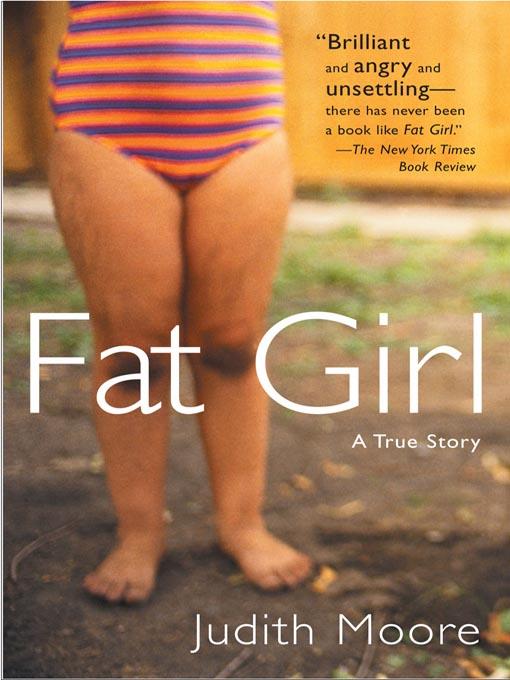
Fat Girl
A True Story
کتاب های مرتبط
- اطلاعات
- نقد و بررسی
- دیدگاه کاربران
نقد و بررسی

October 18, 2004
In her memoir of growing up fat, Moore, who previously wrote about food in Never Eat Your Heart Out
, employs her edgy, refreshingly candid voice to tell the story of a little girl who weighed 112 pounds in second grade; whose father abandoned her to a raging, wicked mother straight out of the Brothers Grimm; whose lifelong dieting endeavors failed as miserably as her childhood attempts to find love at home. As relentless as this catalogue of beatings, humiliation and self-loathing can be, it's tolerable—even inspiring in places—because Moore pulls it off without a glimmer of self-pity. The book does have some high points, especially while Moore is stashed at the home of a kind uncle who harbors his own secrets, but the happiest moments are tinged with dread. Who can help wondering what will become of this tortured and miserable child? Alas, Moore cuts her story short after briefly touching on an unsatisfying reunion with her father and her two failed marriages. The ending feels hurried, but perhaps the publication of this book will give Moore's story the happy ending she deserves. Agent, Sarah Chalfant. (On sale Mar. 3)
Forecast:
Having received advance praise from David Sedaris and Augusten Burroughs, Moore could get substantial review coverage.

February 1, 2005
Author of the noted culinary-themed memoir Never Eat Your Heart Out, Moore once again turns her pen inward. Warning readers not to expect a "triumphant" ending and requesting that they not feel sorry for her, she chronicles her obsession with food, her abusive mother, and never being one of the "picture pretty" girls. She admits: "I hate myself because I am not beautiful. I hate myself because I am fat." Thus Fat Girl may be a cathartic exercise for Moore, but it is obvious that she has not succeeded in exorcising her demons; indeed, at the end we know she is "still hungry," still striving to fill a void. Nevertheless, Moore's tale is honest, engaging, and well crafted, if a little depressing; readers like her, who have "know[n] so many diets," been called "fatso," or survived a loveless childhood, will relate and find solace. Conversely, those wary of living-in-the-past confessionals should steer clear. Recommended for public libraries.-Heather O'Brien, Ph.D. candidate, Dalhousie Univ., Halifax, N.S.
Copyright 2005 Library Journal, LLC Used with permission.

December 1, 2004
Moore's memoir focuses on the "curse" of obesity that has plagued her throughout her life. Given a father who overate and deserted her when she was four and a mother who regularly beat her, one finds no surprise when Moore turns to food for comfort and as a way to sublimate other appetites. Of course, as her vivid writing reveals, obsessions with food and angst over excess avoirdupois are too complex to yield a deterministic answer. Moore's characters stick in readers' minds: a talented mother whose own mother never failed to criticize; an absent, food-obsessed father too guilty to contact his daughter till she was married and pregnant; a generous, nonjudgmental upstairs neighbor who let Moore devour her larder while the neighbor went on an extended trip; and a gay music-teacher uncle who gave Moore the most normal, loving home she knew. Moore struggles with her weight and her barren relationships, never coming to terms with her body image. Poignant, deeply felt, remarkably funny, Moore's memoir will resonate with anyone who's ever lived with self-hatred.(Reprinted with permission of Booklist, copyright 2004, American Library Association.)

























دیدگاه کاربران